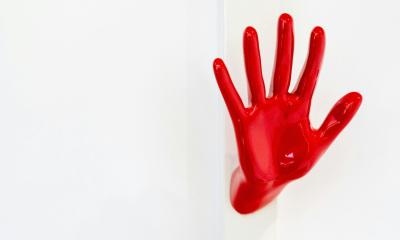Swine flu and hygiene standards
Flu preparations - Under the UK´s National Health Service (NHS) code of practice for nosocomial infections, the hospital Trusts and others are required to ensure, so far as is reasonably practicable, that healthcare workers are free of, and protected from, exposure to communicable infections.
In the Department of Health’s Influenza immunisation programme 2008/09, various categories of people were to be offered flu ‘jabs’. In addition to these groups, it was requested that ‘National Health Service (NHS) employers should offer immunisation to employees directly involved in patient care’ to help reduce the likelihood of flu transmission to patients.
However, new figures from the Department of Health (DoH) indicate that only 14% of front line NHS staff had received a flu vaccine before the 2008-09 flu season.
The Royal College of General Practitioners called for compulsory immunisation for healthcare staff who have direct patient contact.
The flu outbreak in December and over the New Year was the worst for eight years, with more than 60 cases per 100,000 people – many in hospitals. The Health Protection Agency identified the low levels of staff vaccination as a significant factor in an outbreak.
However, last year a Government study of NHS attitudes found that most staff did not view flu as a serious illness and thought themselves not at risk, so a vaccine was unnecessary.
With the current concern about the Mexican ‘swine flu’, one wonders how many hospital staff members have followed through with the available flu vaccinations.
Hygiene failings and improvements
UK – The hygiene code governing healthcare Trusts was introduced two years ago.
However, although most Trusts have met the hygiene standards set by the Care Quality Commission (CQC), 22 out of the 388 registered with CQC — 10 acute hospital trusts, six primary care trusts, four mental healthcare trusts and one ambulance trust — have failed to meet the required standards fully.
The CQC is new, having replaced the Healthcare Commission; Commission for Social Care Inspection and the Mental Health Act Commission. Initiated last year to regulate UK health and social care services, CQC came into effect from this April.
The findings do not necessarily mean that the failed trusts have experienced outbreaks of disease due to low standards of hygiene. They simply have not reached the standards set. Some of the 22 trusts have only been issued with a deadline to meet hygiene standards; others have had conditions placed on their registration, e.g. the requirement to keep wards clean. Others that failed have been directed to improve on surgical equipment decontamination, and to tighten their policies to tackle infections such as MRSA, C. difficile and Legionella.
Legally, the trusts must conform, otherwise they could receive warnings and fines, or even face prosecution or closure.
Scotland
Last autumn Scottish Health Minister Nicola Sturgeon promised to ban further privatisation of hospital cleaning contracts, and that the NHS would employ its own cleaners. Earlier this year the Minister also formed a new inspectorate to police hygiene standards.
This April she announced that 600 cleaners will indeed be recruited by NHS Scotland (a separate body from the UK’s National Health Service) aided by government resources to ensure the boards across the country can hire the additional staff.
According to figures released in April, the number of patients who contracted nosocomial infections in this country has indeed fallen. In the last quarter of 2008, the health boards recorded 157 MRSA cases. Although this is 10 more than for the previous quarter, the figure is 24% lower than in the same quarter in 2007.
Additionally, 1,608 patients, aged over 65 years were recorded as having contracted C. Difficile during as the last quarter of 2007, while in the same period in 2008 the number of cases was 1,299.
Beyond the hygiene benefits of trained staff cleaners, given today’s rising unemployment levels the creation of 600 new jobs within NHS Scotland is also welcomed.
Report: Brenda Marsh
01.05.2009





